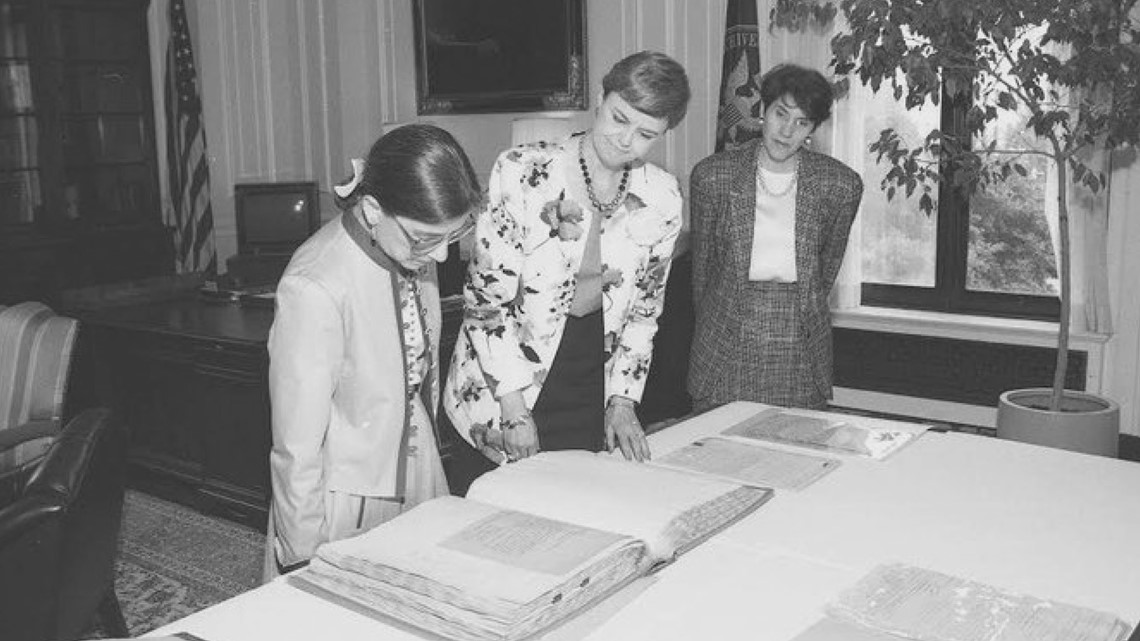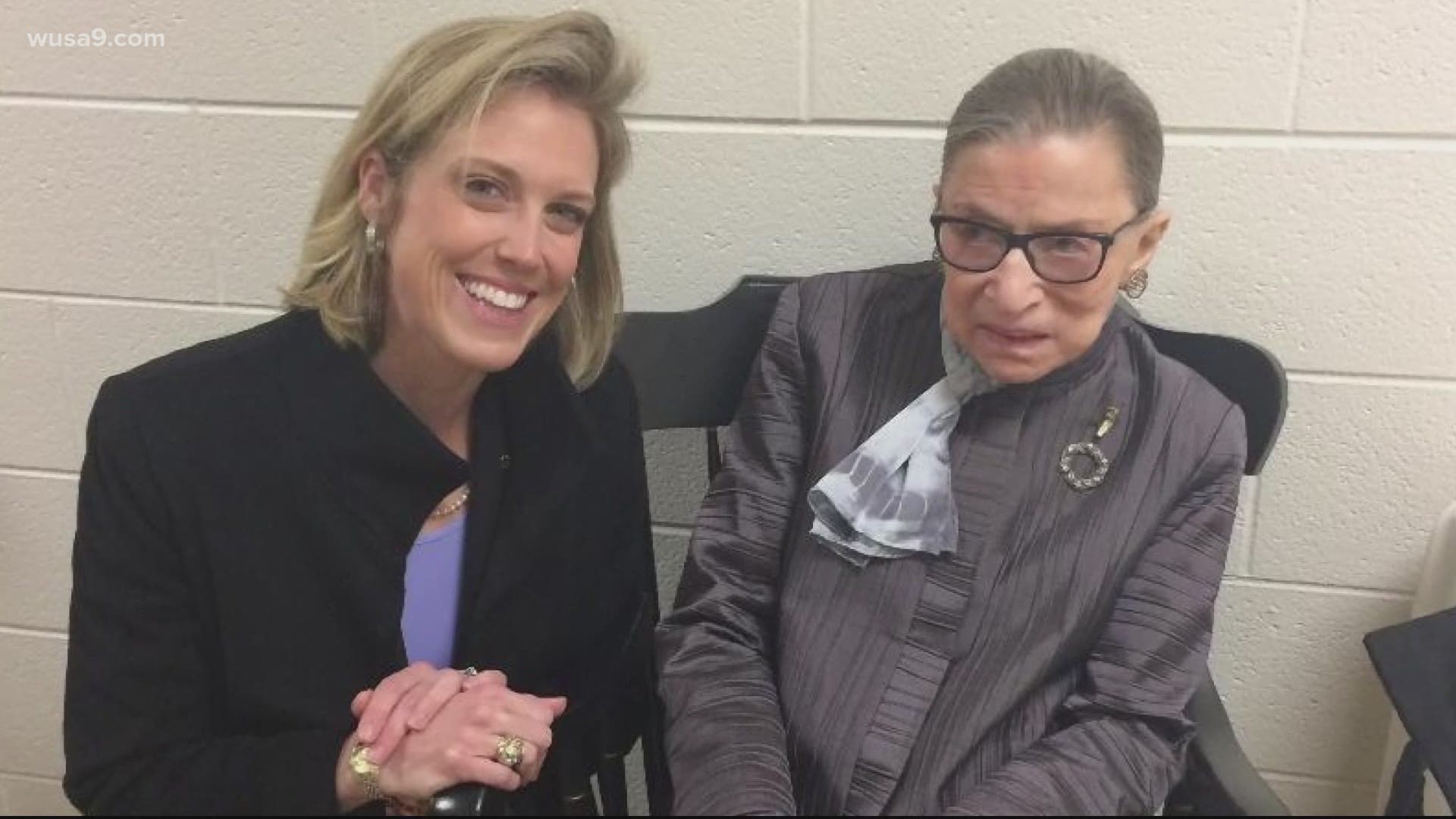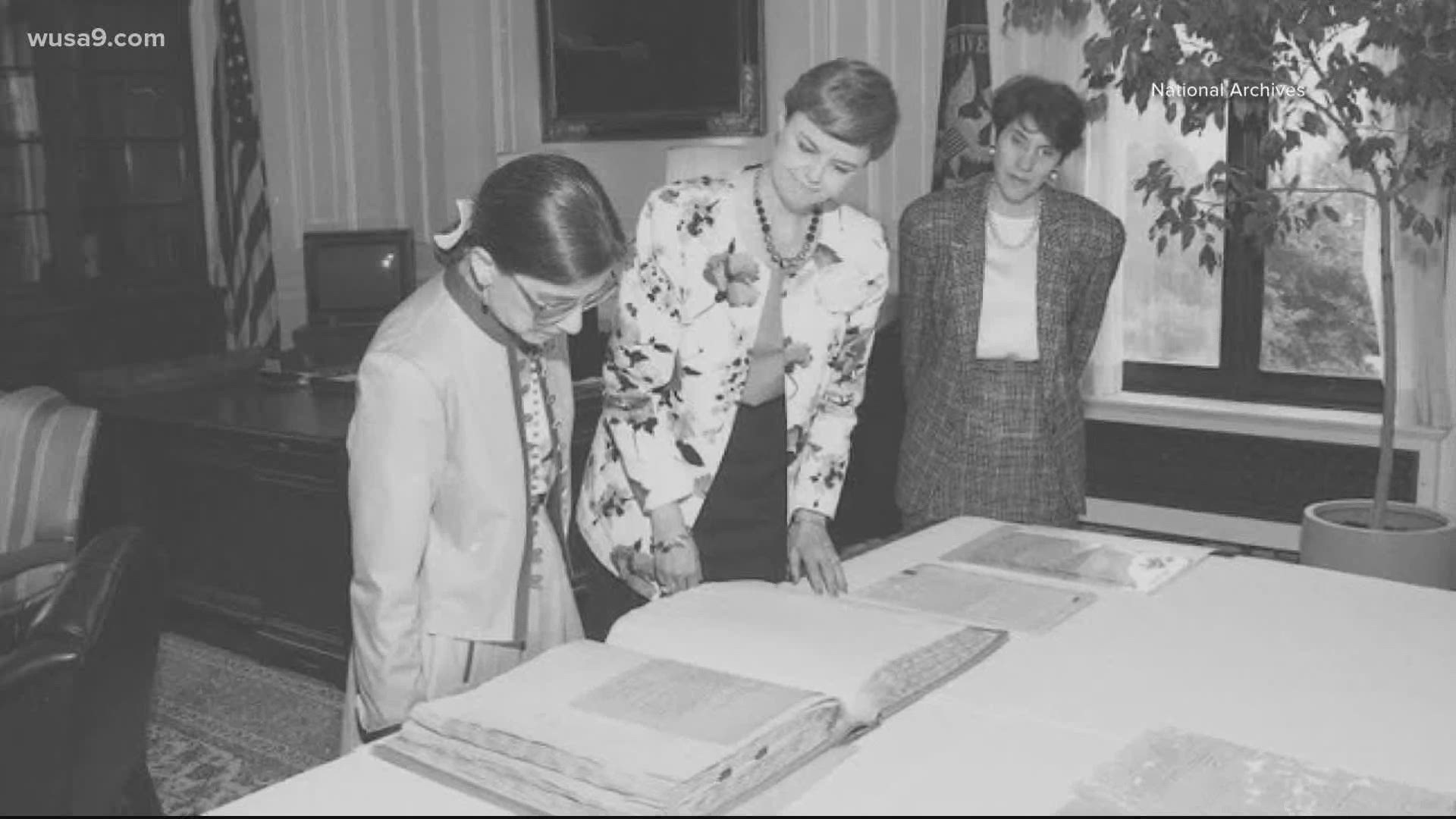VIRGINIA, USA — The nation is preparing to say its final goodbyes to the late Supreme Court Justice Ruth Bader Ginsburg. People have gathered outside the Supreme Court for days to honor the life and legacy of Justice Ginsburg.
Her impact can be seen across the country, including at Virginia Military Institute (VMI) where several current and former female cadets spent time reflecting on her lasting impact.
“It amazes me how far we’ve come over the last 20 or so years and having this opportunity to come here and have the same experience and the same opportunities as the guys do,” said current VMI cadet Anna Armfield.
Lara Tyler Chambers graduated from Virginia Military Institute in 2003.
“I’m a legacy so my father was an alumni and my uncle, my grandfather, my great uncle, my little brother who is eight years younger. I have loved VMI since I was a little girl and was brought up with it,” said Chambers.
Chambers remembers meeting the Supreme Court Justice when she visited VMI for the 20th anniversary of women attending VMI.
“I got to meet with her that morning and I gave her my battle rang and said thanks for fighting for us. It was a real pleasure to meet the woman that made it all possible for me to have the opportunity to go because it truly was exactly what I needed,” said graduate Lara Tyler Chambers.
“It has definitely changed my life for the better. I never would’ve thought when I was a young child that I would go to a school like VMI. It really expanded anything that I thought was my boundaries. It’s has given me the opportunity to just take advantage of opportunities that I never thought were possible,” said Armfield.
Chambers remembers her first year at Virginia Military Institute when there were 28 female cadets. Today, there are more than 46 women in Armfield’s class and 220 women currently at VMI.
“VMI may not have wanted to initially accept women but once that ruling was made, they sure did a fantastic job. We were upheld to the same standards as the men. We had to do the same thing,” said Chambers.
Since hearing about Justice Ginsburg’s passing, Armfield said many people at VMI spent time reflecting on her legacy and impact.
“Mixed emotions for sure. We were sad but also inspired by what she did. It was also kind of inspiring because we got to reflect on what she did and all the things, everything that she did, the step forward that she took,” said Armfield.
“She had the foresight, to open opportunities for people that wanted to take on this challenge,” said Chambers.
According to the U.S. Supreme Court, Justice Ginsburg was born in Brooklyn, New York, on March 15, 1933. She married Martin D. Ginsburg in 1954. She received her B.A. from Cornell University, attended Harvard Law School, and received her LL.B. from Columbia Law School.


She served as a law clerk to the Honorable Edmund L. Palmieri, Judge of the United States District Court for the Southern District of New York, from 1959–1961. From 1961–1963, she was a research associate and then associate director of the Columbia Law School Project on International Procedure.
Ginsburg was a Professor of Law at Rutgers University School of Law from 1963–1972, and Columbia Law School from 1972–1980, and a fellow at the Center for Advanced Study in the Behavioral Sciences in Stanford, California from 1977–1978. In 1971, she was instrumental in launching the Women’s Rights Project of the American Civil Liberties Union, and served as the ACLU’s General Counsel from 1973–1980, and on the National Board of Directors from 1974–1980.
She was appointed a Judge of the United States Court of Appeals for the District of Columbia Circuit in 1980.


